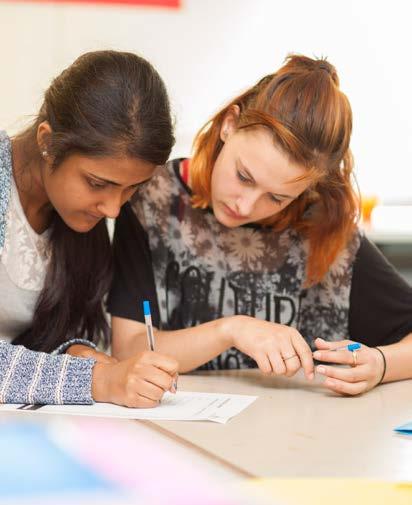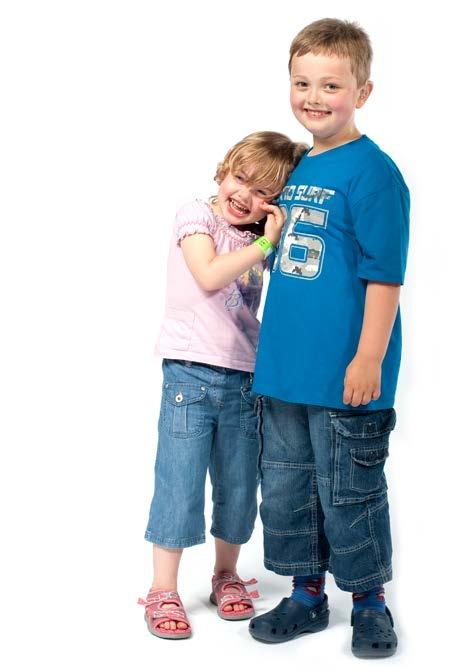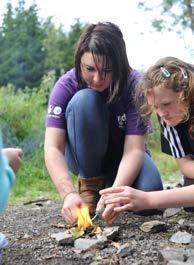What about vulnerable adults?
Some people we support will be classed as vulnerable adults because of their deafness or a disability. The definition of ‘vulnerable adult’ varies in the different countries within the UK.
If you are concerned about any vulnerable person, please speak to a member of staff.
Where can I find out more about safeguarding and my responsibilities?

We have policies and guidance to help you, parents and partners to better understand your responsibilities.
Contact your supervisor or speak to the National Deaf Children’s Society for more information.
Many of our policies are also available on our website at www.ndcs.org.uk/about_us/our_ safeguarding_policies.

Who do I contact?
If you have concerns about the safety of a child you must report this as soon as possible to the National Deaf Children’s Society:
Telephone and SMS: 020 7014 0523 Email: safeguarding@ndcs.org.uk
Other contact details are available in our Child Protection policy, available at www.ndcs.org. uk/about_us/our_safeguarding_policies.
What if I can’t contact someone from the National Deaf Children’s Society?
If you can’t get in touch with a member of staff and you’re concerned about a child’s safety please contact your local social care services or the police.
NDCS is a registered charity in England and Wales no. 1016532 and in Scotland no. SC040779.
This leaflet will help you to understand more about your safeguarding responsibilities when working with us, volunteering with us or attending one of our meetings or events.
Protecting children is everyone’s responsibility
JR0841
Protecting children is everyone’s responsibility
All children have the right to be safe from harm, and it’s everyone’s responsibility to make sure that children are safe. This includes staff and volunteers in all roles, people attending our events, and UK and overseas partners.

Deaf and disabled children are particularly vulnerable, so it’s very important to look out for signs of abuse. This is called child protection, and is part of making sure that children are ‘safeguarded’.
Remember
A ‘child’ is anyone who has not yet reached their 18th birthday.
What should I do if I’m concerned?
You should report any concerns about a child immediately. See the ‘Who do I contact?’ section for more information.
You must also tell us if:
• you think a child is at risk of abuse
• you have any concerns about the behaviour or actions of someone working with a child.
What kinds of things should I look out for?
Children
• Do they have an injury with no satisfactory explanation?
• Are they often poorly fed or clothed?
• Are they often fearful or aggressive?
• Do they act in sexual ways that are not appropriate for their age?
Adults working with children
• Do they talk about children or their relationship with children inappropriately?
• Do they look at inappropriate images?
• Do they have clear boundaries when working with children?
What should I do if a child shares something in confidence with me?
• Never promise to keep a secret.
• Listen carefully and only ask questions to clarify what the child is saying.
• Tell them that to help keep them safe you will have to tell someone.
• Always take what they say seriously.
• Be friendly but remain responsible.
• Report your concerns immediately using the contact details in this leaflet. Use the child’s own words when reporting.
How should I act around children?
Never:
• use bad or inappropriate language
• talk about personal issues, or issues that may be offensive
• get involved in arguments with a child or their parents/carers.
Always:
• act responsibly and keep clear, appropriate boundaries
• be aware of how your actions may look to others
• report any concerns.
If you work directly with children
Never:
• share personal contact details
• engage with children on Facebook or other social media
• make unnecessary physical contact with children
• take photographs of children
• buy individual gifts, sweets etc.
These lists are not exhaustive. For more information, please ask to see a copy of our Safer Working Practice Guidance.



